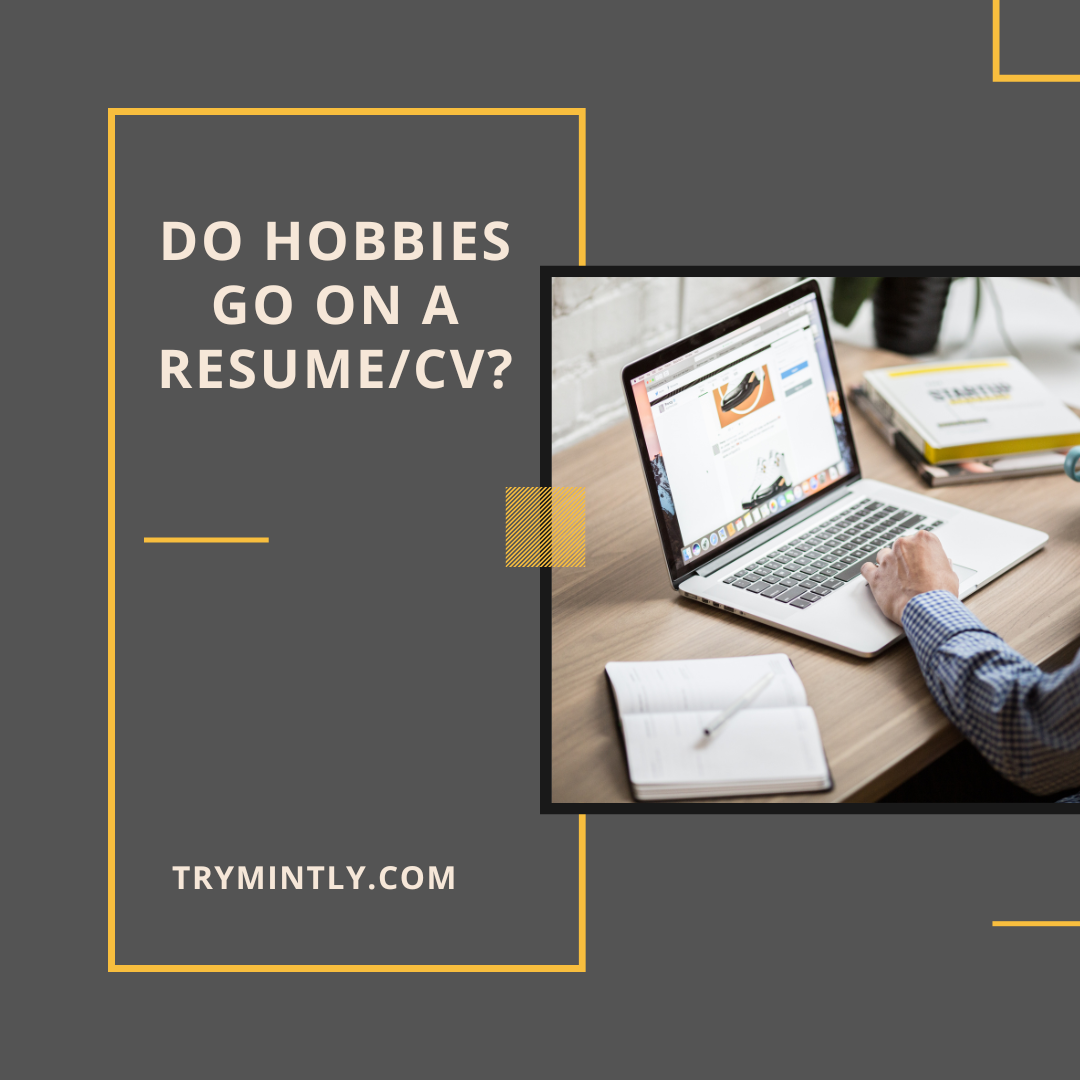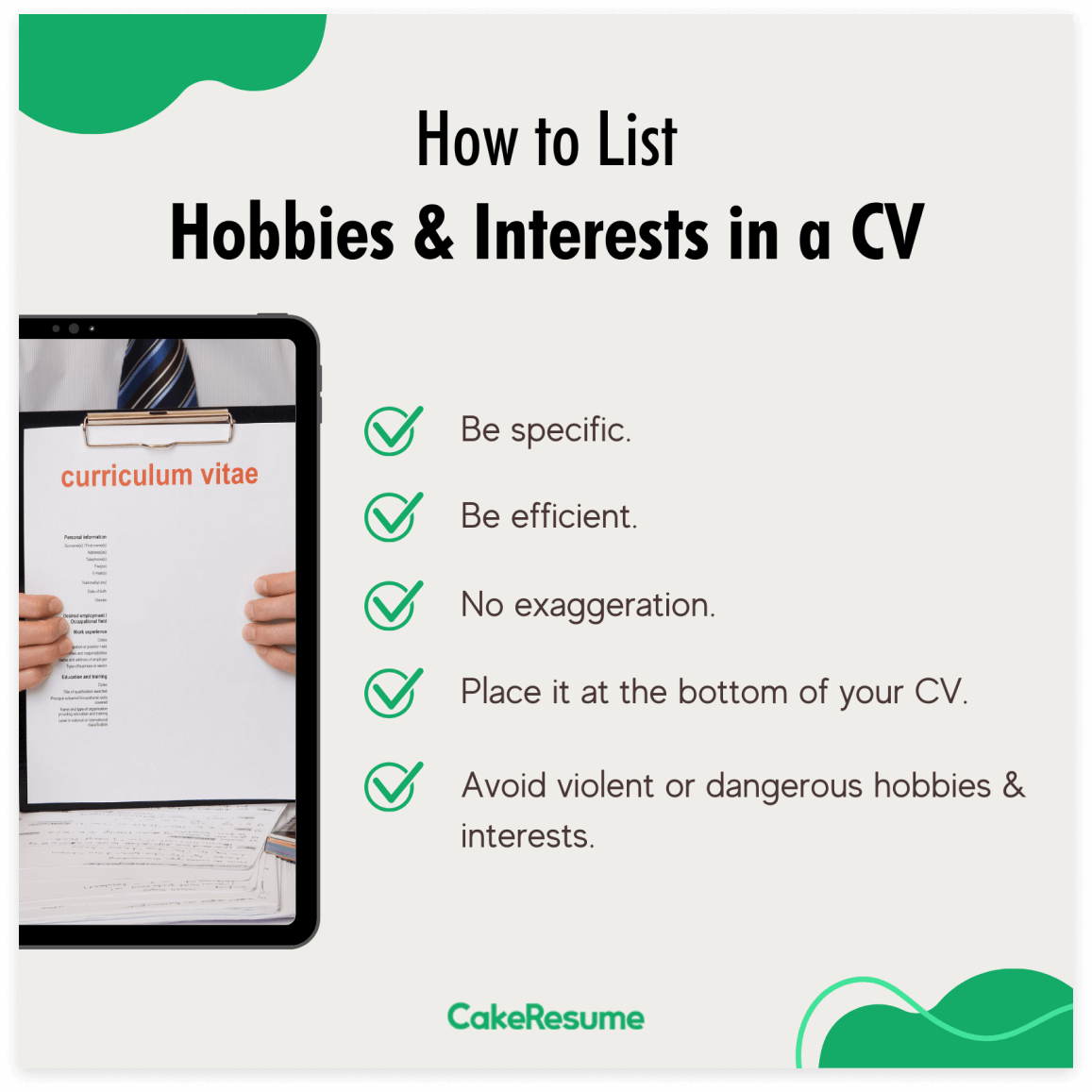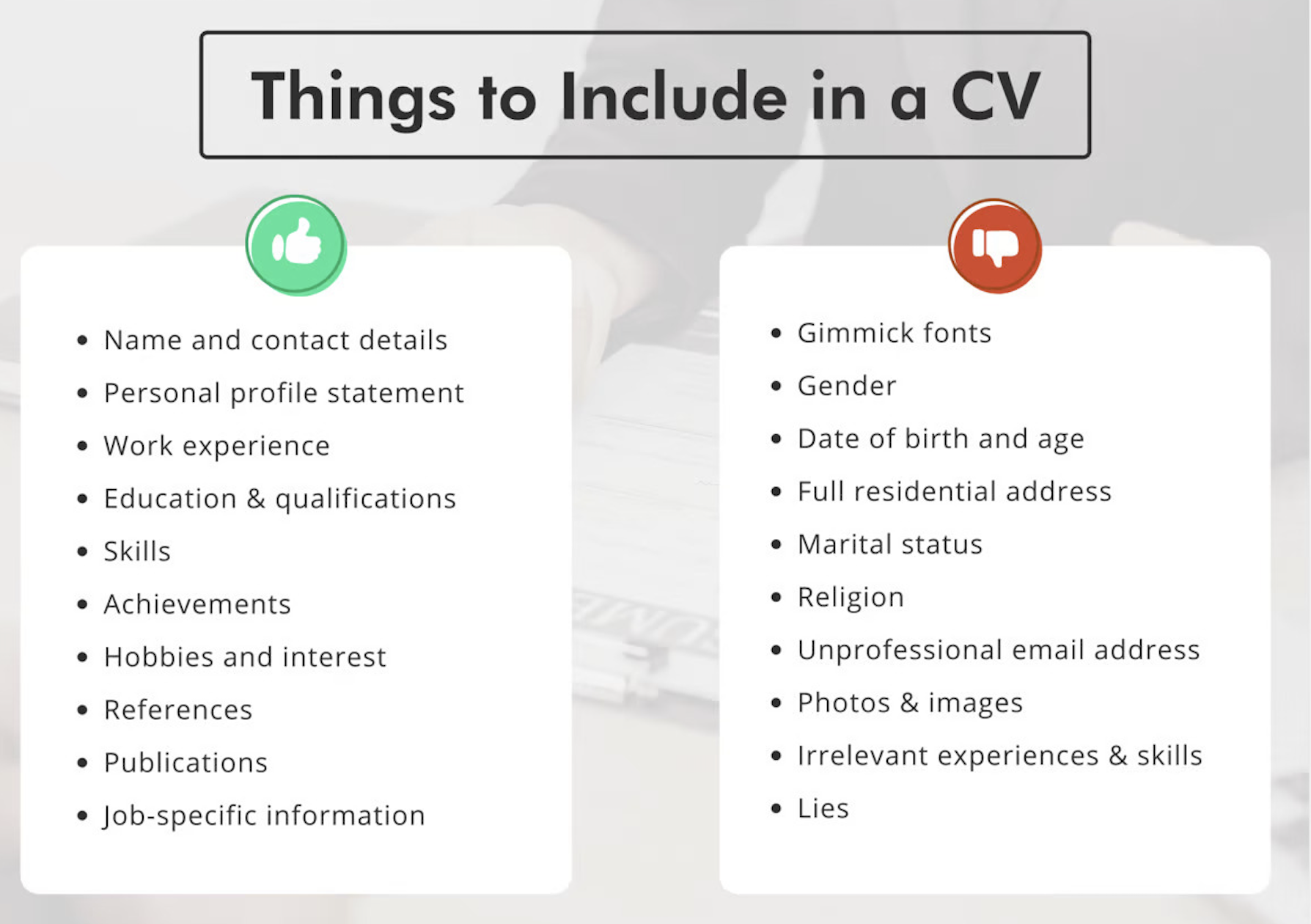Career Counselling and Guidance
Should you include Hobbies in the Resume in 2023?
Vandana Matta
January 14, 2023
A hobby is an activity done for fun. Hobbies are done during your time off, not professionally, and typically done for no pay. Hobbies include collecting things like stamps or Americana, engaging in creative and artistic endeavors, playing sports, or exploring ideas and knowledge.
Should We Mention Hobbies & Interests on Our Resume/CV?
We already have limited space on our resume as is. So, as a general thing, we should ONLY mention our hobbies and interests on a resume if we have the space for it. We should know that certain hobbies say specific things about us.
As a rule of thumb, our hobbies and interests should show our good side and how we’d make the perfect fit for the job we’re applying to.
For example, if we like to speak at local conventions, chances are, we might be extroverted and good at public speaking – which might come in handy in a sales role.
A resume is often the most important factor in deciding whether or not we will get the opportunity to interview for a job. Our resume must be concise and must be targeted to the specific position we want. If we are job seekers, we may be wondering if we should include hobbies in our resumes.
If you are uncertain about whether or not to include the hobbies in your resume, consider the below factors:
Adding a personal interests and hobbies section is often seen as irrelevant and unprofessional. Yet, the culture is changing.
A lot of companies are no longer looking for mere minions to sit and drink coffee and answer phones all day. They want them to fit in with their culture, so they need something more than just work experience. Take a look at this: Google hires people who are open and playful. If we want to work at Google, we should tailor our resume so that our best hobbies match their work culture.
On the other hand, if we are applying to a buttoned-up accounting firm, we might want to skip putting hobbies in our resume altogether.
Examples of the top 15 best hobbies and personal interests to put on a Resume/CV
Volunteering and community involvement
There’s a reason we’re mentioning volunteering first—data shows that 82% of managers would rather hire someone with volunteering experience. Volunteering shows a lot of initiative and strong morals. It also teaches organizational and leadership skills.
Writing
Communication is the heart of every organization. Writing novels or publishing scientific papers gives a clear representation of our written communication skills.
Blogging
Blogging, just like any kind of writing, proves we have communication and writing skills. Data shows communication is the most important skill for people entering the workforce.
Podcasting
The podcast format has become incredibly popular. Podcasting allows us to demonstrate we have industry expertise, and know-how to build an audience (marketing skills), and connect with thought leaders (networking and research skills). It’s a good way to improve organizational skills, too.
Marketing
The percentage of US adults who use social media increased from 5% in 2005 to 79% in 2019. The rise of social media has created such new job professions as social media manager, content creator, or SEO specialist. If we’ve ever made a Facebook page that drew an engaged audience or owned an Instagram profile with a stable number of followers, it will definitely make a good impression on the recruiter.
Learning languages
Speaking English might not be enough if we’re planning on developing our careers. The three fastest-emerging languages of global consumers are Russian, Hindi, and Japanese. Studies have found a correlation between learning languages and problem-solving abilities, intelligence, and memory skills.
Photography
Photography is so much more than just taking pictures. It develops conceptual skills and technical expertise but also teaches how to collaborate with others.
Travel
Curiosity, courage, and self-organization. Traveling can prove we’re not afraid of stepping outside our comfort zone and learning new things. And flexibility and adaptability are among the most important workplace personal traits.
Sports
It doesn’t matter what sport we do. Exercising in general develops self-discipline, and patience, and helps bounce back from disappointment. Team sports create opportunities to improve leadership, communication, and interpersonal skills, too.
Yoga
We might say yoga is a type of sport, but it’s much more than stretching. It also involves concentrating on breathing and is a great way to relax your mind. And data shows a relaxed employee is less likely to leave their job.
Dance
Dancing isn’t just fun. It’s a social activity that teaches collaboration skills. It also boosts cognitive performance and helps to unwind.
Art
Hundreds of jobs require creativity skills. Imagination and inventiveness are also parts of critical-thinking skills. And research revealed that 93% of employers value critical thinking over the candidate’s undergraduate degree.
Reading
It doesn’t matter if it’s romance books that you read. Reading shows we follow our passions. It also prevents cognitive decline and reduces stress. And helps maintain work-life balance.
Making music
Making music is good for our brains. We might find it surprising, but research shows learning how to play instruments fosters math and science ability. It also helps improve our mental performance (making you better able to concentrate) and memory.
Listening to music
Listening to music lowers stress and elevates our mood. It strengthens learning and memory abilities, too. In the ever-changing corporate world being able to learn new things on a daily basis is a top employability skill (especially with the rise of AI).
They want to see through the hobbies and interests on our resume to find the soft and hard skills. And there are plenty of ways to achieve that-
Top Soft and Hard Skills to Read From Hobbies & Personal Interests on a Resume/CV
| Hobby & Personal Interest | Top Soft Skill | Top Hard Skill |
|---|---|---|
| Volunteering | Initiative | Public Relations |
| Writing | Creativity | Text editor |
| Blogging | Communication | Content Management Software |
| Podcasting | Public speaking | Voice emission |
| Marketing | Data analysis | Search Engine Optimization |
| Learning languages | Problem-solving | Lateral thinking |
| Photography | Attention to detail | Adobe Photoshop |
| Travel | Organization | Foreign languages |
| Sports | Sportsmanship | Work ethic |
| Yoga | Perseverance | Focus |
| Dance | Collaboration | Memory |
| Art | Adaptability | Cultural sensitivity |
| Reading | Critical thinking | Research |
| Music | Self-discipline | Composition |
How to List Hobbies and Interests on a Resume/CV?
- Find what specifically we enjoy about that hobby.
- Focus on its unique aspects.
- Don’t feel obliged to be too creative.
- Create a separate section under a “Hobbies” or “Hobbies & Interests” heading.
- List up to 5 personal interests.
- Don’t list anything generic.
What is the importance of the Hobbies section in the Resume/CV for a fresher?
A section for hobbies and interests in our curriculum vitae is typically taken in order to demonstrate that our interests extend beyond our profession and to aid the employee or interviewer to connect with us on a personal level. It is easier to demonstrate our capabilities, emphasize our soft skills, and communicate information to a potential employer by highlighting hobbies and interests in a CV.
Now the next thing that comes to our mind is what to include under hobbies. When we include our interests in our CV, it is vital to be smart and selective.
Are the Hobbies relevant?
For the most part, we should only list hobbies if they are professionally relevant. For example, an interest in blog writing is an advantage when applying for a writing or editorial position. An interest in drawing and art could be seen as a positive when applying for an opportunity at an architectural firm. Make sure the hobbies in our resume show an interest or devotion to the job that we are applying to get. The point is this: don’t create a long laundry list of all the hobbies that we like to do in our free time. Tons of people enjoy watching sports, but that won’t help in obtaining employment at most companies. Keep the list of hobbies relevant to the job we’re applying for.
Listing hobbies and interests on your Resume/CV
Including your interests and hobbies may not be the first thing you consider when writing a professional resume, but doing so can support a resume in a variety of instances, including when we have little or no work experience. And, some organizations even prefer to see resumes with interest on them as it gives the hiring manager a well-rounded idea of the candidate as a person.
Here are a few times when we should consider including interests and hobbies on our professional resume:
- We don’t have many skills that are relevant to the job you’re applying for.
- We have little or no work experience.
- We have little educational experience.
- The company specifically asks applicants to include their interests and hobbies.
- The company actively looks for applicants with unique character traits and personalities.
- The job listing includes duties that relate to our interests and hobbies.
We should consider whether to include hobbies or interests on our resume for each job we apply for based on the company’s specific requests and work culture.
Conclusion
Including hobbies in a resume is a personal choice that may vary depending on the circumstances. In 2023, the general consensus is that including hobbies can be beneficial if they are relevant to the job or demonstrate valuable skills. Hobbies can provide insight into a candidate’s personality, interests, and potential cultural fit within the organization.
However, it is important to be selective and avoid including irrelevant or controversial hobbies that may distract from the professional qualifications. Ultimately, the decision to include hobbies in a resume should be based on the specific job requirements and the overall impression the candidate wants to convey to potential employers.
All Tags
Loading...
Loading...


![List of Important Skills for a CV [+ How to Write & Where to Put Them] | CakeResume](https://www.blog1.trymintly.com/wp-content/uploads/2023/01/Screenshot-2023-01-13-at-11.20.49-PM.png)